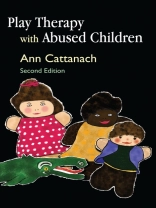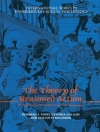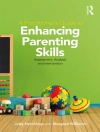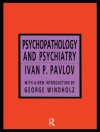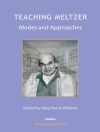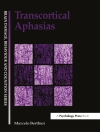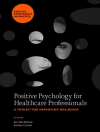Praise for the first edition:
‘Ann Cattanach writes with enormous empathy and warmth, and with a refreshing lack of sentimentality… [This] is an unpretentious and optimistic book, and a very positive addition to recent publications.’
– British Association of Play Therapists
‘I would recommend the book to anyone working in this field. This is a well presented, clear and easy-to-read book, providing a balanced mixture of factual information and case material.’
– British Journal of Occupational Therapy
‘What impressed me so much about this work was Cattanach’s knowledge of children and their inherent strengths as well as their vulnerabilities. This practical and easy to apply book is recommended for anyone who works with abused children and would like further insight as well as practical and informative advice on healing the traumatized child.’
– Trauma and Loss: Research and Interventions
‘Her accounts of the way in which play is used to make sense of traumatic experiences are full of insight and often moving. All aspects of the work are covered. This is an exceptional volume – goes far beyond a mere text book.’
– Therapy Weekly
This second edition of Ann Cattanach’s highly commended book explores the use of play therapy with abused children as a way of helping them heal their distress and make sense of their experiences through expanding their own creativity in play.
The book provides practical ways of starting play therapy with abused children and explains how the child can use this process for healing. Models of intervention are described with consideration given to the particular needs of the child and the work setting of the therapist. Suggestions include short and medium term interventions, individual/group and sibling work. This edition provides new case study material, up-to-date information on relevant legislation on children’s rights and welfare and recent developments in research in the field.
This book is essential reading for professionals working with abused children, as well as those interested in the use of creative therapies.
Tabla de materias
1. The Rights of Children and the Abused Child. The Rights of Children. New Approaches to the Care and Support of Children in the United Kingdom. Every Child Matters: Change for Children. Protecting Children and Young People: The Charter. The Abused Child is the Invisible Child. Definitions of Child Abuse. The Trauma of Abuse. The Effects of Abuse on the Child’s Future Development. The Effects of Sexual Abuse on Children. Transition from Victim to Abuser. 2. Play Therapy as a Healing Process for Abused Children. The Meaning of Play. What is Play? Play as a Cultural Phenomena. History of the Study of Play. Child Development Theories and Play. Representing the Social World in Play. Play and Dramatic Play. Playing with Children. Children Playing Together. Play as Therapy. Non-Directive Play Therapy. Cognitive-Behavioural Play Therapy. Prescriptive Play Therapy. Play and Healing for Abused Children. 3. Starting Play Therapy: Settings, Materials, Boundaries. Play Therapy to Heal the Hurt Child. The Therapist. Supervision. Assessing the Need for Therapy. Timing the Intervention. Information about the Child. Investigations and Therapy. Starting Play Therapy. Finding a Safe Place for the Child. Material for Play. Play with Toys. The Use of Toys and Play Material in Play Therapy Across Cultures. 4. The Play Therapy Process for the Abused Child. The Play Therapy Process for the Abused Child. The Role of the Therapist. Preparation for Play. Starting Play. In the Middle Lies the Monster. Am I a Monster? Losing the Monster. The Final Stages of Play. Becoming Visible. 5. Play Therapy with Physically Abused Children. Helping the Physically Hurt Child through Play. 6. The Emotionally Abused Child. Emotional Abuse. The Sessions. 7. The Sexually Abused Child. The Difficulties of Young Children. Children with Learning Difficulties. Sexually Abused Boys. Getting Rid of the Monster: Ways of Coping. 8. The Therapist’s Journey. References. Books for Children. Index.
Sobre el autor
Ann Cattanach is a play therapist and dramatherapist in private practice. She has wide experience of teaching and lecturing in drama, dramatherapy and speech communication, and has also worked as a child psychotherapist, family therapist and dramatherapist for Social Services and NHS Trusts.
